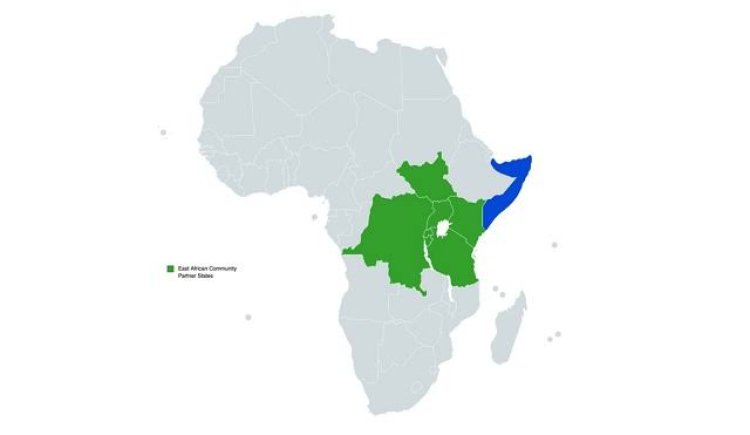Why every East African should Support Somalia to Join the EAC

By Mwalimu Tahakabar
Since the Early 1990s, Somalia has undergone a series of turbulent episodes that have left many dead and millions displaced. Even with the challenges of war and terrorism, Somalia remains one of the countries in Eastern Africa with a big cluster of youth. The youth in Somalia are entrepreneurial and open to doing business.
Over the past years, there has been news of Somalia applying to join the EAC economic and political bloc. If this is realized, that means a big economic to the EAC bloc and Somalia in particular. Somalia joining the EAC would increase the number of EAC states from six to seven states. This would give the EAC a bigger economic base than the European Union.
We should remember that by demographics, Somalia brings to board a huge package of productive young people. By Age Structure, Somalia has a predominantly young population, with a significant percentage of youth. Approximately 75% of the population is under the age of 30, making youth a prominent demographic group in the country.
So it's in the best interest of East Africans and Somalis themselves if they support the idea of joining the EAC as quickly as possible.
For instance, if Somalia joins the East African Community (EAC), it would have several impacts on Somali youth. Here are some potential effects:
1. Economic Opportunities: Joining the EAC would provide Somali youth with increased economic opportunities. The EAC is a regional economic bloc that promotes trade and investment among its member states. Somali youth would have access to a larger market for their goods and services, both within Somalia and in the other EAC countries. This could lead to the creation of new businesses, job opportunities, and improved living standards for the youth.
2. Skill Development and Education: The EAC emphasizes cooperation in education and skills development. If Somalia joins, Somali youth could benefit from exchange programs, scholarships, and vocational training opportunities within the EAC. This would enable them to acquire new skills, gain exposure to different cultures, and enhance their capabilities, making them more competitive in the job market.
3. Mobility and Freedom of Movement: Joining the EAC would likely ease movement restrictions for Somali youth within the member states. They would have the ability to travel, work, or study in other EAC countries without cumbersome visa requirements. This would enhance regional integration, cultural exchange, and collaboration among Somali youth and their counterparts in other EAC countries.
4. Social and Cultural Integration: Becoming part of the EAC would foster social and cultural integration among Somali youth and youth from other EAC member states. They would be exposed to diverse cultural practices, norms, and languages, which can promote tolerance, understanding, and unity. This integration could also lead to increased cooperation on various social issues, such as youth empowerment, peacebuilding initiatives, and environmental conservation.
5. Access to Resources and Infrastructure: The EAC promotes regional infrastructure development, including roads, railways, energy, and ICT connectivity. If Somalia joins, it would benefit from such initiatives, which could address infrastructural deficits within the country. Improved infrastructure would provide Somali youth with better access to essential resources, services, and markets, thus enhancing their economic prospects and overall well-being.
However, it's important to note that the impact on Somali youth would depend on the policies and mechanisms put in place by the EAC and the Somali government to ensure inclusive participation and equitable distribution of benefits.
